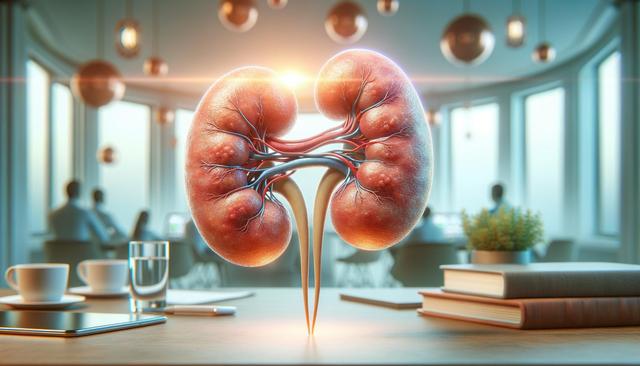What Is Stage 3 Chronic Kidney Disease?
Stage 3 chronic kidney disease (CKD) is classified as a moderate decline in kidney function. It is typically identified when an individual’s estimated glomerular filtration rate (eGFR) falls between 30 and 59 mL/min. At this stage, the kidneys are no longer operating at full capacity, and waste products begin to accumulate in the body. However, it is still possible to manage the condition effectively, especially if it is detected early. Many people may not experience obvious symptoms at first, making routine testing essential for those at risk.
As the disease progresses, symptoms might begin to appear, such as fatigue, swelling in hands or feet, and changes in urination patterns. It’s important to understand that stage 3 CKD is divided into two sub-stages: 3a (eGFR 45–59) and 3b (eGFR 30–44). The distinction helps in assessing the severity and planning treatment strategies. While this stage is not yet classified as kidney failure, it does warrant significant attention and proactive health management.
Causes and Risk Factors
Several underlying health conditions and lifestyle factors can contribute to the development of stage 3 chronic kidney disease. The most common causes include:
- Diabetes (both type 1 and type 2)
- High blood pressure (hypertension)
- Glomerulonephritis (inflammation of the kidney’s filtering units)
- Polycystic kidney disease
- Prolonged use of certain medications that affect the kidneys
In addition to these medical contributors, there are various risk factors that can increase the likelihood of developing CKD. These include a family history of kidney disease, obesity, smoking, and being over the age of 60. People in certain ethnic groups may also have a higher predisposition. Monitoring kidney health through regular medical checkups is especially important for individuals in these high-risk categories.
Symptoms and Diagnosis
Stage 3 CKD symptoms are often subtle and can easily be mistaken for other conditions. As kidney function declines, patients may begin to notice:
- Unexplained fatigue or weakness
- Swelling in the lower extremities
- Muscle cramps, especially at night
- High blood pressure
- Changes in urination frequency or appearance
Diagnosis is usually made through blood and urine tests. The key marker is the eGFR, which estimates how well the kidneys are filtering. A urinalysis can detect the presence of protein or blood in the urine, both of which can indicate kidney damage. In some cases, imaging tests or a kidney biopsy may be needed for a more detailed assessment. Early diagnosis is crucial for slowing disease progression and preventing complications.
Treatment and Management Options
Although stage 3 chronic kidney disease cannot be reversed, it can be managed to slow its progression and maintain a good quality of life. Treatment typically involves a combination of lifestyle changes, dietary adjustments, and medications. Key components include:
- Managing blood pressure and blood sugar levels
- Following a kidney-friendly diet low in sodium, phosphorus, and protein
- Maintaining a healthy weight and getting regular exercise
- Avoiding medications that can further damage the kidneys
- Working closely with a nephrologist or primary care provider
Medications may be prescribed to control symptoms and underlying conditions, such as ACE inhibitors or ARBs for hypertension. Dietitians can also help tailor a nutrition plan that meets the specific needs of someone with CKD, which plays a vital role in preserving kidney function.
Living with Stage 3 CKD
Adjusting to life with stage 3 chronic kidney disease involves both physical and emotional adaptations. Patients may need to make significant changes to their daily routines and habits, but many people continue to live full and active lives with proper management. Education is a key part of living well with CKD; understanding the condition empowers patients to make informed decisions about their health.
Support groups, counseling, and online communities can provide emotional assistance and practical advice. It’s also beneficial to involve family members in lifestyle changes, as shared support can improve outcomes. Routine monitoring through lab tests and follow-up appointments is essential to track progress and adjust treatment plans as needed. With a proactive approach and a supportive care team, many individuals with stage 3 CKD can delay the progression to more severe stages for years.
Conclusion: Taking Charge of Your Kidney Health
Stage 3 chronic kidney disease is a wake-up call that demands attention but still offers a significant window for effective management. By understanding the causes, recognizing symptoms early, and embracing a comprehensive treatment plan, individuals can maintain their health and quality of life. Regular medical follow-ups and lifestyle adjustments are critical in slowing the disease’s progression. If you or someone you know has been diagnosed with stage 3 CKD, now is the time to take informed, proactive steps to protect long-term kidney function and overall well-being.


